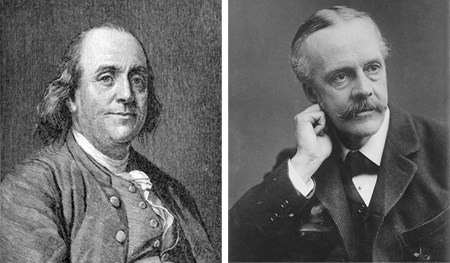It happened two weeks ago in San Francisco; it’s happening next Sunday here in Prague. It’s the day the clocks move forward, unequivocally my favorite day of the year. If we ever getting around to casting off the shackles of the Gregorian calendar (a task the Czechs have gotten a small-but-significant head start at), I would propose that this become the new first day of the year. Wouldn’t it make more sense to have the calendar roll over on this day, the unofficial start of spring and good times, rather than on some random dark-ass date in the middle of winter? Clocks Go Forward Day always feels like the beginning of something big– how many days can you say that about?
In my opinion, it’s a shame that Clocks Go Forward Day isn’t met with more ritualistic fanfare– a day off from work, a few pagan rites, etc. I feel like we’ve been conditioned to greet it with an air of shrugging indifference, an attitude that I suppose stems in part from the fact that Clocks Go Forward Day is a scheduled routine, a rational measure that doesn’t really feel magical. (Imagine, in contrast, if the change just happened out of the blue one evening with no warning– poof, an extra hour of light! People would be freaking out). But I can’t help but suspect that the constant bean-counting and whining of Daylight Savings Time detractors also impacts our attitude towards this day. You know them: the Oh-no-I’m-losing-one-hour-of-sleep crowd. Let’s just say this isn’t a set of priorities that I have a lot of respect for. In fact, I wish I could do business with it, in a colorful-beads-for-Manhattan-Island-type exchange: ‘Okay, I’ll give you this one shiny hour of sleep in exchange for months of light spring and summer evenings.”
Like everything, the idea of Daylight Savings Time was invented by Benjamin Franklin. During his sojourn in Paris as an American delegate, Franklin observed rows of houses with shutters as the Parisians struggled to sleep through the blasting morning sunshine (incidentally, the same sight that inspired Al Gore to propose the invention of the internet 200 years later). Although Franklin only proposed the idea half-jokingly in a satirical essay, it was picked up by a London builder named William Willett who spent a fortune lobbying for it and managed to get it brought before the British Parliament, only to have it laughed off the floor. I can only imagine what a lonely existence it must have been to be the sole proponent of moving the clocks forward, the endless ridicule one would have been subjected to. Once Germany enacted Daylight Savings Time, Great Britain began to take it more seriously, but only finally started moving their clocks forward after much contentious political debate. The leader of the anti-DST side seems to have been Lord Balfour, the original I-want-my-one-hour-of-sleep bean-counter. At one point, he raised the following imaginative scenario: “Supposing some unfortunate lady was confined with twins and one child was born 10 minutes before 1 o’clock. … the time of birth of the two children would be reversed. … Such an alteration might conceivably affect the property and titles in that House.” Presumably, this was immediately followed by men with powered wigs rioting and tearing up chairs.
The only thing I’ll say in defense of Lord Balfour’s point of view is that the time change does create some really mind-bending and inconvenient scenarios when one is operating between countries that have different DST dates. My attempts to do freelance work for outfits based in the U.S. come to a screeching halt during the two week period between the American and European DST start dates, as we constantly screw up and miss each other’s calls. More surreally, when I went to New Zealand a few years ago, the time change happened at different times and in different directions. For part of my trip, the difference was 21 hours, then 22 for a few days, then finally 23, which made the massive time change feel even more science fiction-y that it already would have.
Of course, you can’t have Daylight Savings Time without Standard Time, which itself only came about after considerable wrangling and arm-twisting. Before the railroads really took off, there wasn’t really this idea of people all observing one exact time- they pretty much just went by whatever the local sundial said. It was only in the late 19th century that there began to be a need to have everyone on the exact same time. When the measure was imposed on Detroit in 1900, the city resisted, leading to a bizarre situation where half the town was following Standard Time and half was following the ol’ town sun dial for a spell.
The entire notion of Standard Time and Daylight Savings Time, of time zones and of setting the clocks ahead and back to suit human activities and preserve energy– it’s really one of the more brazen acts of Enlightenment thinking (along with, say, carving up the Middle East into distinct nation states– that one didn’t work out so well). One can only imagine the thrill and nervousness experienced by the person tasked with drawing a line down the map and declaring that the two sides would obey practices regarding something as basic as man’s relationship to the sun.
(Photo: stolen from my friend Jess’ Facebook page, of our friends hanging out in Dolores Park in the summer twilight).
(See this excellent site for more info on history and practice of Daylight Savings Time)




You might like the book Time Lords. It descibes how a Canadian railway engineer named Sir Sanford Fleming pushed the idea of time zones upon the world. Unsurprisingly, people laughed at first since dropping black time balls at noon was obviously the proper way to do things.
He actually wanted a single universal time – i.e. In SF you’d eat dinner at 0300 “cosmic time” – and there was a fascinatingly crazy letter-based time zone nominclature that I don’t remember well enough to describe accurately. Global time failed but time zones made it.
Also lots of rather interesting discussion on what time is and means to society. If you’ve read Longitude you’ll like it.
The only problem with your very awesome suggestion of CGFD is the necessity of a Clocks Go Backwards Day. CGBD is a day I hate, but maybe we could get something out of it my turning it into a Dia de los Muertos type deal.
Oh, and using Google to search “time in cityname” is simply an international godsend.
But even with your DST anti-hemisphere observation – I like to think of it as a rubik’s cube counter twist – NZ being just 4 hours behind SF right now (well, 20 hours ahead but you know what I mean) blows my mind.
Thanks for the recommendation– sound great.
Regarding CGBD: you can look forward to my post coming Oct 25th: ‘The Worst Day of the Year’. I totally agree– it’s a dismal occasion. I don’t understand how people obliviously take it in stride.
I believe that Sebald discusses in one of his books (Austerlitz?) the influence of the railroads on the synchronization of time across the european continent.
Also, if i recall correctly, didnt R. Reagan stop Daylight Savings Time for a few years in the US? Adoption of the Gregorian calendar required skipping 11 days. The last country in Europe to make the switch was Greece in 1923:
The last country of Eastern Orthodox Europe to adopt the Gregorian calendar was Greece on Thursday, 1 March 1923, following Wednesday, 15 February 1923.
[ http://en.wikipedia.org/wiki/Gregorian_calendar ]
That means that up until 1923 you could still celebrate 2 new years’ in one month.
I think that one of the volumes of System of the World has a nice little section describing taking advantage of traveling in a Europe where some the dates differed from country to country.
I think that some countries are deprived of the temporal shift by switching time zones. Illinois also used to do that until 2006.
I’m curious about your Ronald Reagan factoid. I don’t recall it personally from my youth… but it seems of a piece with the kind of contra-Enlightenment thinking that’s become GOP calling card. Will troll the info superhighway for references to this…